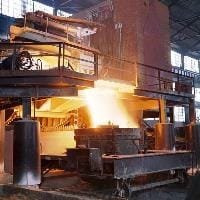(GENEVA) – The European Union brought a dispute in the World Trade Organization (WTO) Friday against Indonesian export restrictions for raw materials used in the production of stainless steel.
According to the EU executive, Indonesia’s restrictions are unfairly limiting access of EU producers to raw materials for steel production, notably nickel as well as scraps, coal and coke, iron ore and chromium.
The EU is also challenging subsidies that encourage use of local content by Indonesian producers and give preference to domestic over imported goods, which goes against WTO rules.
EU steel producers currently operate under a great deal of pressure, battling against the consequences of global overcapacity and unilateral trade restrictions. The Commission says export restrictions imposed by Indonesia put further jobs in the EU’s steel industry at risk.
“Despite our concerted efforts, Indonesia has maintained the measures in place and even announced a new export ban for January 2020,” says the EU’s Trade Commissioner Cecilia Malmström: “We must now act to ensure that international trade rules are respected. That’s why today we are taking a legal action in the WTO to get these measures removed as soon as possible.”
The Commission says it is committed to ‘resolute and strong enforcement of multilateral and bilateral trade rules where European interests are at stake’. It also underlines the EU’s continued commitment to the WTO and its dispute settlement system as an impartial and efficient means to get global trade rules upheld and enforced.
The measures that the EU is challenging include:
- export restrictions and export prohibitions on raw materials for the production of stainless steel, notably nickel;
- domestic processing requirements and domestic marketing obligations, as well as complex and unclear export licensing procedures and requirements affecting access to raw materials such as nickel but also iron, chromium, metal waste and scraps, coal and coke;
- an import duty exemption scheme which makes certain benefits for the import of machines, goods and other material for the production process in newly established or modernising factories conditional upon the use of at least 30% of domestic equipment and machinery.
The consultations that the EU has requested today are the first step in WTO dispute settlement proceedings. If they do not lead to a satisfactory solution, the EU can request that the WTO set up a panel to rule on the matter.
Currently, the EU is involved in 42 WTO disputes, and 3 disputes under its trade agreements. The disputes brought by the EU have led over the last five years to the removal of discriminatory taxes, illegal customs duties or export restrictions in key markets such as Russia, China, US, and South America and reopening of markets worth 10 billion per year.
EU request for WTO consultations with Indonesia


